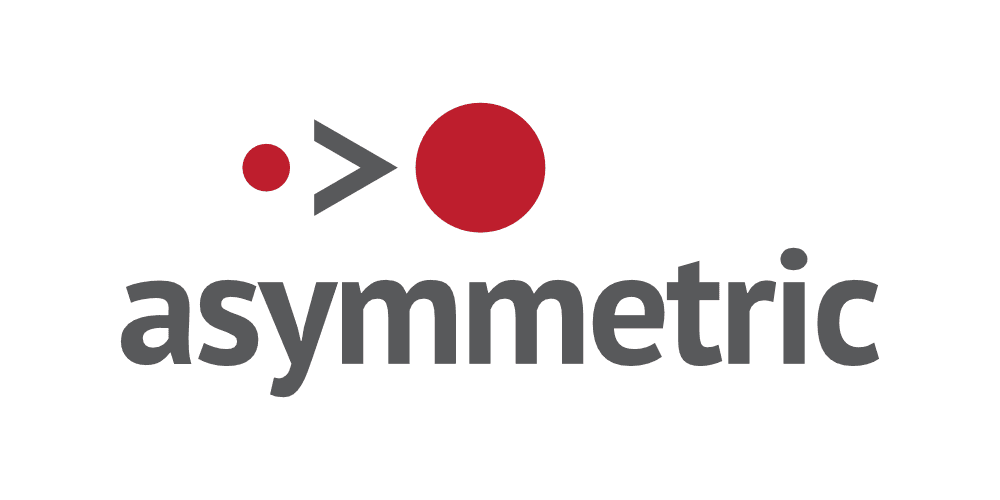The role of the Chief Marketing Officer (CMOs in 2025) has become more strategic, requiring expertise across a range of specialized areas. As the marketing landscape evolves, marketing leaders are realizing that partnering with marketing agencies is the best way to scale their marketing efforts while staying ahead of emerging trends. This shift has led to a surge in agency partnerships, as CMOs are seeking to leverage specialized expertise and increase their business growth in an increasingly complex environment, emphasizing the importance of understanding the agency's efforts in achieving these goals.
Introduction to Partnering With Marketing Agencies
The Changing Role of CMOs
In 2025, business leaders and marketing teams face more challenges than ever, from maintaining customer relationships to keeping up with marketing challenges like algorithm updates and privacy regulations. As businesses grow and evolve, chief marketing officers need to make informed decisions about how to allocate resources. For many, the answer is clear: they need to form strategic partnerships with marketing firms to bring in fresh ideas, specialized skills, and a deeper understanding of marketing strategy.
CMOs today are also under pressure to align their teams with strategic objectives while keeping up with the pace of innovation, ensuring that all efforts are in line with the company's vision. Managing all of this internally can be overwhelming, making marketing agency partnerships not just a smart choice, but a critical component of long-term success.
Why CMOs Are Partnering with Marketing Agencies
More and more CMOs are choosing to partner with marketing agencies because they bring the specialized expertise and experience needed to achieve measurable results for their clients. Agencies can scale marketing activities faster, execute marketing campaigns with precision, and provide strategic guidance that ensures alignment with the company’s vision and goals.
One of the most compelling reasons CMOs turn to agencies is their ability to provide marketing expertise across a wide range of areas, from search engine optimization (SEO) and content marketing to social media management and lead generation. Many agencies have dedicated teams of experts who understand how to use the right tools and key metrics to deliver results, focusing on optimizing a website for conversions, launching a social media campaign, or refining a brand’s messaging. Whether it’s optimizing a website for conversions, launching a social media campaign, or refining a brand’s messaging, agencies offer the specialized skills needed to navigate these challenges and deliver tangible results.
Choosing the Right Agency Partner

Selecting the right marketing agency partner is critical for businesses looking to achieve their marketing objectives and drive revenue growth. Marketing leaders should consider factors such as the agency’s expertise, experience, and approach to marketing strategy and campaign development. A well-defined approach to agency partnerships involves setting clear goals, key performance indicators, and expectations for the partnership.
Businesses should look for an agency that shares their values, understands their target audience, and can provide tailored marketing solutions to meet their specific needs. The agency’s ability to provide measurable results, track performance metrics, and offer strategic guidance is also essential for a successful partnership. Marketing teams should research and evaluate potential agency partners, considering factors such as their portfolio, client testimonials, and industry experience.
A deep understanding of the agency’s services, including search engine optimization, content marketing, and social media management, can help businesses make informed decisions. Ultimately, the right agency partner can help businesses achieve their marketing goals, drive growth, and establish a strong market presence. By choosing an agency that aligns with their strategic objectives, businesses can ensure a productive and mutually beneficial partnership.
Benefits of a Successful Agency Partnership

A successful agency partnership is more than just outsourcing tasks; it’s about forming a true agency relationship that drives growth by focusing on the big picture. When CMOs and agencies work closely, they can co-create well-defined goals and establish key performance indicators (KPIs) to track success. The account team from the agency becomes an extension of the in-house team, providing valuable resources, strategic insights, and fresh ideas that align with the company’s business goals.
Agencies are also great at adapting to the complex landscape of modern marketing, bringing a human touch to their strategies to engage more effectively with audiences. They offer flexibility and can pivot quickly to address new challenges, all while bringing fresh perspectives and new insights. By partnering with agencies, CMOs can keep their organizations ahead of the curve, leveraging the agency’s industry experience to gain a competitive edge.
Content Marketing Strategies
Developing a content marketing strategy is crucial for marketing leaders aiming to drive growth and revenue. A well-defined content marketing strategy should encompass a mix of blog posts, social media, and email marketing to effectively reach the target audience. Marketing teams need to focus on creating high-quality, engaging content that resonates with their audience and sets them apart from competitors.
Aligning content marketing strategies with the company’s vision and business goals ensures maximum impact. Measuring the success of these efforts is essential, and marketing leaders should track key performance indicators such as website traffic, lead generation, and conversion rates. A successful content marketing strategy requires a deep understanding of the target audience, their needs, and preferences.
Staying up-to-date with the latest trends and best practices in content marketing is vital for maintaining an effective strategy. Collaborating with other departments, such as sales and customer service, can help marketing teams create a more comprehensive content marketing strategy. By focusing on these elements, marketing leaders can drive growth and achieve their business goals.
Driving Revenue Growth Through Strategic Partnerships

For CMOs focused on revenue growth, agency partners provide the tools and resources necessary to drive results. Whether through content marketing, social media, or performance metrics, agencies help CMOs optimize their marketing programs and drive growth by staying ahead of the latest trends and targeting the right audiences at the right time. Agencies also allow CMOs to make informed decisions based on real-time data, giving them the agility to adjust their strategies and achieve better outcomes.
The right agency partner can also help businesses scale, ensuring that as they grow, their marketing program operates efficiently. The collaboration between in-house teams and agencies involved in the process ensures there is regular communication, a shared understanding of the company’s vision, and a clear focus on measurable results.
Agency Relationship Management
Building a successful agency partnership requires regular communication, trust, and a deep understanding of each other’s needs and goals. Marketing leaders should work closely with their agency partners to ensure alignment and maximize the value of their marketing efforts. A well-defined agency relationship management strategy should include clear goals, objectives, and key performance indicators to measure success.
Marketing teams should focus on building a strong, collaborative relationship with their agency partners, based on mutual respect, trust, and open communication. Agency partners can bring specialized expertise and fresh ideas to the table, helping marketing teams drive growth and revenue. Regular reviews and assessments of agency partnerships are essential to ensure they are meeting their goals and objectives.
A successful agency relationship management strategy requires a clear understanding of the agency’s strengths, weaknesses, and areas of expertise. Marketing teams should be proactive in seeking feedback and insights from their agency partners to continually improve and optimize their marketing efforts. By focusing on these elements, marketing leaders can ensure a successful agency partnership that drives growth and achieves their business goals.
Measuring Agency Performance
Measuring the performance of a marketing agency is crucial for businesses to evaluate the effectiveness of their marketing efforts and strategies. Key metrics for evaluating agency performance include website traffic, lead generation, conversion rates, and return on investment (ROI). Marketing leaders should work closely with their agency partners to establish clear goals, key performance indicators, and benchmarks for success.
Regular communication and progress updates are essential for ensuring that both parties are aligned and working towards common objectives. Google Analytics can provide valuable insights into website traffic, engagement, and conversion rates, helping businesses to assess the impact of their marketing campaigns. A well-defined approach to measuring agency performance involves tracking performance metrics, analyzing data, and making data-driven decisions to optimize marketing strategies.
Businesses should also consider conducting regular reviews and assessments of their agency partnership to ensure that it remains effective and aligned with their marketing objectives. By measuring agency performance and making adjustments as needed, businesses can optimize their marketing efforts, drive growth, and achieve better outcomes. This continuous evaluation process helps maintain a high standard of performance and ensures that the agency’s efforts are contributing to the company’s overall success.
Key Considerations for CMOs

When selecting a marketing agency, CMOs must ensure that they are partnering with a team that aligns with their brand’s needs. A successful agency partnership isn’t just about finding the right agency; it’s about finding the right agency with the right approach, tools, and vision, as most agencies predominantly take a tactical approach. Agencies should be able to demonstrate industry experience, provide a clear understanding of your business goals, and be agile enough to navigate changes in the marketplace. CMOs should also prioritize building a relationship that fosters building trust and strategic insights throughout the partnership.
Businesses should look for an agency that shares their values, understands their target audience, and can provide tailored marketing solutions to meet their specific needs, considering other factors such as the depth of the agency's industry expertise. Marketing teams should research and evaluate potential agency partners, considering factors such as their portfolio, client testimonials, industry experience, and the quality of their top talent.
By forming these strategic alliances, CMOs ensure that their marketing efforts are more streamlined, effective, and aligned with their business goals. The partnership becomes a true extension of the marketing team, delivering measurable results and creating a foundation for sustained growth.
Final Thoughts for Partnering With Marketing Agencies
The decision to partner with a marketing agency is no longer an optional luxury but a necessary step for CMOs who want to stay competitive in 2025. Marketing agency partnerships offer the right combination of specialized expertise, strategic guidance, and valuable resources needed to achieve scalable growth, encouraging CMOs to dig deeper into their strategies. In a world where marketing challenges are ever-evolving, the right agency partners can provide the insights and execution necessary for success.
As marketing continues to evolve, so too will the need for strategic partnerships. In 2025 and beyond, CMOs will continue to rely on these powerful collaborations to drive growth, foster innovation, and achieve their company’s vision, while gaining more insights from their agency partners. These partnerships will ensure they provide the most value to their customers, with a focus on delivering quality content.
About the author
Partner at Asymmetric Applications Group, Inc., a unique agency that specializes in helping SMBs gain a competitive advantage through the application of asymmetric tools and techniques. Learn more about my background and experience at www.linkedin.com/in/mark-a-hope. You can contact me at +1 (608) 410-4450 or by email at mark.hope@asymmetric.pro.

